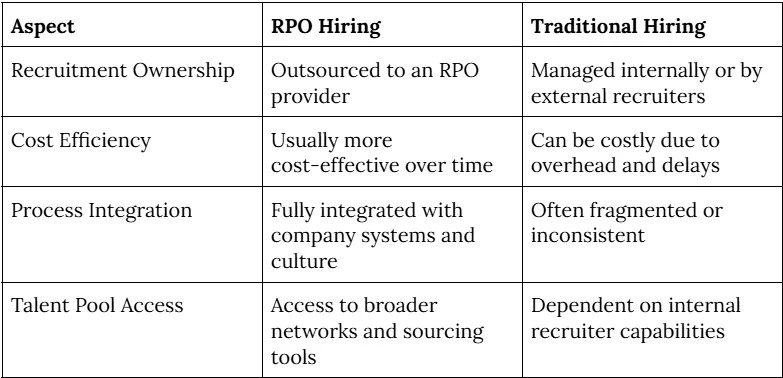RPO Models: A Guide to Recruitment Process Outsourcing
If you have been curious about what RPO is in recruitment, you may find that looking into RPO will be a game-changing concept for your recruitment strategies. Recruitment Process Outsourcing (RPO) is a partnership where an external provider handles all or part of the recruitment functions for a company. RPO allows companies to recruit at scale quickly, efficiently, and strategically so they can stay ahead of their competition.
In this post, we will define the types of RPO models available, discuss the benefits of recruitment process outsourcing, clarify how RPO works, compare RPO vs traditional hiring, and outline the best RPO solutions available for companies of all sizes.
What is RPO Recruitment?

Simply put, RPO in recruitment means a service in which companies hire an outside expert firm to take care of their recruitment needs. RPOs take care of sourcing, screening, interviewing, and onboarding for the organization. RPOs are different from normal recruitment agencies in that the RPO’s embedded in the company’s hiring function while performing all the tasks and services related to hiring in a way that fits the company’s culture and goals, referred to as end-to-end hiring services.
How Does RPO Work?
Having a foundational understanding of how RPO works is helpful if you are a company that is thinking about this model. The RPO process usually involves the following core elements:
1. Assessment of Recruiting Needs: An RPO provider will spend time with the company to understand its hiring needs, what it plans for its workforce, and what the recruiting goals are, so that the recruitment process outsourcing benefits are understood about the needs.
2. Designing a Recruiting Strategy: The RPO will develop a recruiting strategy that outlines sourcing channels, candidate screening considerations, and an additional timeline. This will ensure that the benefits from the recruitment process outsourcing are adopted.
3. Sourcing and Screening Talent: Utilising sophisticated tools and extensive talent sourcing networks, the RPO will source candidates, screen resumes, conduct interviews, and shortlist candidates. The RPO will be showing how RPO works.
4. Support in Hiring Decision Making: RPO has teams that often liaise with hiring managers, arranging interviews, gathering feedback, and supporting the hiring decision process. This ensures employers benefit from recruitment process outsourcing.
5. Onboarding and Reporting: After a candidate is selected, the RPO provider, as part of its value proposition, will support with onboarding processes and provide analytics and reporting on recruiting performance. This is another example of how RPO works and works well.
RPO vs Traditional Hiring: Key Differences
Many companies debate between RPO vs traditional hiring methods. Here’s a comparison to highlight the distinctions:

Benefits of Recruitment Process Outsourcing
Investigating the advantages of recruitment process outsourcing makes it easy to see why many companies utilize RPO solutions for companies:
1. Cost Savings: RPO solutions for companies reduce the cost of recruitment by streamlining processes, using technology, and removing the need for large teams of internal recruitment.
2. Quality of Hire: RPO solutions for companies assure quality through specialized recruiters completing thorough screening. RPO solutions for companies deliver candidates who are not only qualified for the job, but qualified for the company culture – to ensure a fit with both!
3. Time-to-fill: RPO providers will have better optimized workflows and talent pools tailored to the needs of the client to ensure they fill their hiring timeline, making this one of the best benefits of recruitment process outsourcing.
4. Scalability and Flexibility: No matter if an organization is hiring for a seasonal spike or a large project, RPO solutions for companies can streamline the process and scale their resources without compromising on quality.
5. Candidate Experience: RPO solutions for companies look to ensure a smooth, consistent communication with applicants and streamline the process so that they have a positive candidate journey, which is ultimately part of the whole experience both candidate and company will endure.
6. Compliance and Risk Management: RPO providers adhere to labour laws, as well as hiring regulations, and thus, the RPO solutions for companies are a reliable option to de-risk hiring and compliance.
Also Read: How Cloud Recruitment Supports Hybrid and Remote Workforces
How to Implement RPO in Your Organization
Successful implementation of RPO requires:
1. Clear Objectives: Define the recruiting goals and expectations.
2. Vendor Selection: Select the RPO provider that demonstrates industry knowledge and cultural fit.
3. Integration planning: Ensure systems and processes will be compatible.
4. Continued Collaboration: Keep lines of communication open to adjust strategies as needed.
5. Performance Measurement: Monitor key performance indicators (KPIs), including time-to-fill, cost-per-hire, and candidate quality.
RPO Solutions for Companies: Choosing the Right Model
There are different types of RPO (Recruitment Process Outsourcing) solutions for companies of all shapes and sizes, industries, and hiring volumes. Some common RPO models include:
1. End-to-End RPO: It provides total RPO solutions for companies, including the management of the entire recruitment life cycle, from requisition to onboarding, to ensure everything flows smoothly.
2. Project RPO: This is used for short-term hiring needs or projects where the RPO solutions for companies manage recruitment for a specific timeframe.
3. Selective or Partial RPO: This allows companies to outsource parts of Recruitment, such as sourcing, screening, while they still have flexibility; therefore, this is usually the most flexible of RPO solutions for companies.
4. On-Demand RPO: This is the most flexible of RPO solutions for companies based on the need. When the company requires recruitment support, they can quickly turn the service on or off.
The need to go through this exercise of comparing the different RPO solutions for companies is based on various factors, including budget, hiring volume, and how much control you want to maintain over the recruitment process.
Final Call on RPO Models
Understanding what RPO is in recruitment and the differences to traditional hiring can reshape your approach to talent acquisition. With the benefits of RPO, including cost savings, quicker hires, and better quality candidates, if you’re a company that has to hire in a competitive market, you could appreciate this option! The various RPO solutions for companies and learning about how RPO works could help businesses choose and implement the right model to match their recruitment challenges.
Ready to revolutionize your hiring process? Contact Time Agency Group, a leading tech employment agency, to explore customized RPO solutions tailored to your business and start benefiting from streamlined recruitment today.
FAQs on Guide to Recruitment Process Outsourcing
Q1. What is recruitment RPO?
Recruitment RPO is the act of outsourcing all or part of the recruitment process to an external provider.
Q2. What are the advantages of recruitment process outsourcing?
Advantages include cutting costs, speedier hiring, improved candidate quality, and a flexible model for scaling recruitment solutions.
Q3. How does RPO work in practice?
RPO providers evaluate needs, strategize plans, source candidates, do initial screenings, and attend the onboarding process.
Q4. How does RPO differ from traditional hiring?
RPO allows integrated, scalable, cost-effective hiring solutions, whereas traditional hiring tends to be a slower, inefficient process.
Q5. What types of RPO solutions for companies are available?
Some of the many models available include end-to-end, project-based, selective, and on-demand RPO services.
Q6. Do small companies and businesses benefit from RPO?
Yes, many RPO providers offer scalable solutions that work for small and medium businesses.
Q7. How do you measure RPO success?
Success measurement metrics would include KPIs like time-to-fill, cost-per-hire, quality of hire, and candidate experience.
Q8. Is RPO suitable for all industries?
RPO is flexible, and enhancements to recruitment strategies can be mentored with RPO across a variety of industries, including technology, healthcare, and finance.
Related Article: How AI is Redefining Recruiting






